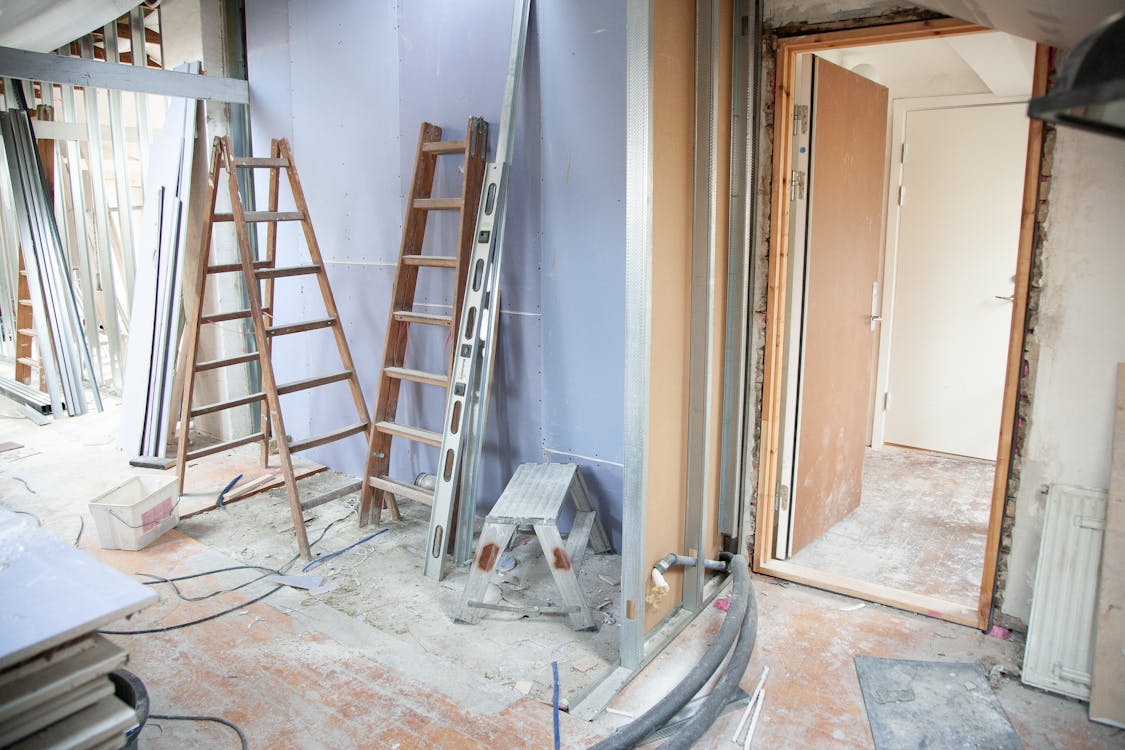Many homeowners these days are choosing to convert their garage to expand the functional square footage of their home. Although this can be a great solution for gaining additional living space and increasing the value of your property, it’s essential that you fully understand the garage conversion planning permission process before embarking on a project of this type.
The following comprehensive guide will explain everything you need to know about the garage conversion planning permission process in the UK so that your project runs smoothly and complies with local building regulations.

Permitted Development Rights
In the UK, you can make certain changes to your property without having to apply for planning permission. This is what’s known as permitted development rights. Generally speaking, most garage conversions are covered by these rights, so you won’t need to apply for planning permission. However, it’s important to understand the rules surrounding these rights before you start work so that you are 100% sure that planning permission is not required for what you have planned.
The following types of small-scale garage conversions typically fall under permitted development rights:
- Converting a garage that’s attached to your house into a living space, such as a bedroom, living room, gym or home office.
- Converting a detached garage into a living space, provided the conversion does not increase the floor area of the garage by more than 150%.
Moreover, it’s also important to be aware of the restrictions and limitations that accompany these rights.
Restrictions and Limitations
If any of the following apply to your conversion, then your project will not fall under permitted development rights, and you will need to apply for garage conversion planning permission.
Specifically, you must not:
- Create a new window or external door that faces a public road.
- Raise the roof of your garage by more than 150mm.
- Extend the garage beyond its original footprint.
- Use the space as a separate dwelling (a fully functional apartment with its own entrance, kitchen, bathroom and living space).
Even if your garage conversion meets all requirements under permitted development rights, you should still submit a building control proposal to your local council to make sure your project is covered. This is important because there are many additional exceptions to consider, including whether you live in a house, flat or maisonette and if your property is a listed building or located in a conservation area. There also might be local restrictions relating to size or height or specific guidelines to ensure that the character and appearance of the property and the surrounding area are not adversely affected.

Listed Buildings and Conservation Areas
You will probably need to apply for a specific type of garage conversion planning permission if your property is considered a listed building or if it is located in a conservation area.
A listed building is one that is protected by law as a result of its historical or architectural importance. For example, a Tudor-era manor house or a Victorian terraced house might be officially listed and homeowners would therefore require listed building planning permission before making any changes to the property, including converting a garage.
A conservation area is an area of special architectural or historical interest that the local planning authority has designated to preserve its character or appearance. For example, Bath is classed as a UNESCO World Heritage Site and, as such, it is considered an area of conservation. If your home is located in one of the 10,000 conservation areas in England, then you will need to apply for conservation area planning permission before you can convert your garage.

Applying For Planning Permission
If you do require planning permission for your garage conversion, then you will need to prepare and submit a detailed planning application to your local authority. You will also need to submit supporting documentation to help you demonstrate the proposed design, dimensions and layout of your conversion, as well as its potential impact on the surrounding environment and neighbouring properties.
This will typically include:
- Scaled drawings of the existing garage layout and the proposed converted space.
- A description of the proposed conversion.
- A detailed map showing the location of your property and the surrounding area.
- A list of the materials and finishes that you will be using for the garage conversion, including walls, floors, ceilings and windows.
- If the conversion involves significant structural changes, a report from a qualified structural engineer that demonstrates the stability and safety of the proposed design.
- If the conversion is likely to have a significant impact on the environment, an environmental impact assessment may be required. This may involve studies of noise levels, air quality and wildlife impacts.
- A detailed statement explaining why you think the conversion should be allowed.
Building Regulations Approval
Regardless of whether or not you need to apply for garage conversion planning permission, you will need to obtain building regulations approval for your project. These regulations ensure that any changes you make meet certain safety and quality standards.
This includes standards and requirements relating to:
- Structural stability
- Fire safety
- Thermal insulation
- Ventilation
The best way to obtain approval and ensure that your garage conversation meets all building standards and requirements is to hire a qualified builder or construction company to carry out the work.
Parking Provision
One of the biggest concerns for local authorities when they consider an application for garage conversion planning permission is the impact it might have on parking in the surrounding area. After all, if you will no longer be using your garage to park your car, then you will likely be relying on street parking which can potentially strain local parking resources and lead to congestion, especially in densely populated areas.
Some local councils might impose certain conditions to address this concern, such as requiring homeowners to create alternative parking spaces on their property if they choose to convert their garage.
Neighbour Consultation Scheme
Finally, another big concern that local councils take into account before granting planning permission for a garage conversion is the potential impact it might have on the surrounding area, including neighbours. As a result, even if you do not require planning permission for your project, your local authority may still implement a neighbour consultation scheme where they inform neighbours about your proposed garage conversion, giving them the opportunity to raise any concerns. Although neighbours do not have the power to veto a project, their input may still influence the outcome of your garage conversion planning permission application.
Tags:
planning permissionDecember 14, 2023




Comments